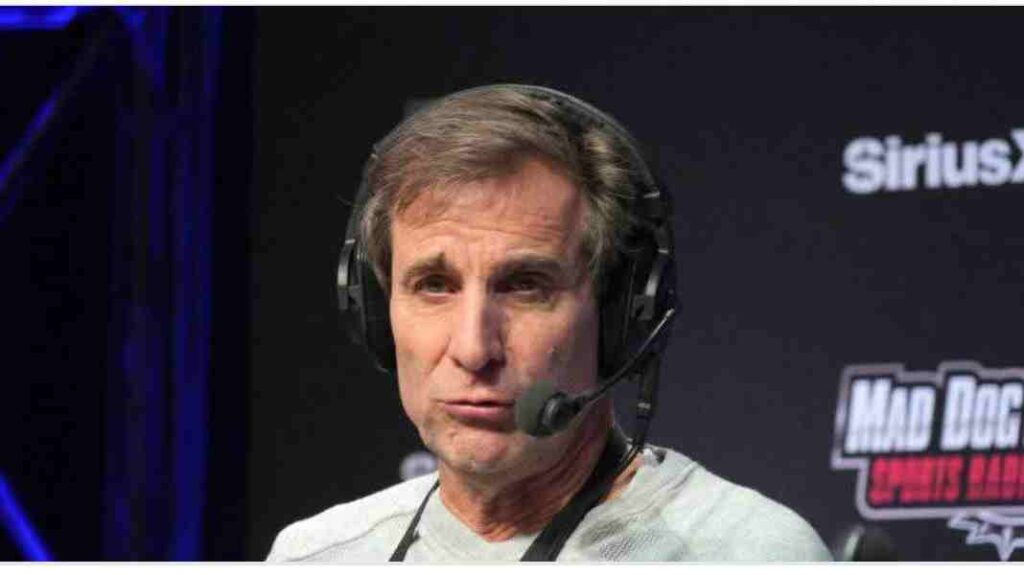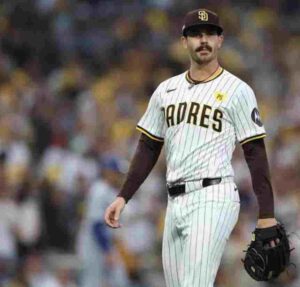
Chris Russo Blasts Mets for Snubbing Son’s Interview Request, Vows Never to Root for Team Again
Chris “Mad Dog” Russo, one of the most outspoken and animated voices in sports talk radio, has never been one to hold back his opinions. Whether it’s on his SiriusXM show Mad Dog Unleashed or during his guest appearances on ESPN, Russo has built a career on unfiltered, passionate rants. However, his latest outburst had nothing to do with player performances, coaching decisions, or league controversies. Instead, it was personal—rooted in what he saw as a blatant snub by the New York Mets, a team he has followed for decades.
The Incident: Mets Deny Colin Russo’s Interview Request
The controversy unfolded during the New York Mets’ spring training in Florida. Colin Russo, Chris’ son, co-hosts Russo and Rizzo Show on ESPN West Palm Beach. As part of his duties, Colin attempted to secure an interview with a Mets player, only to be told that all player schedules were full. While this may seem like a routine scheduling conflict, it didn’t sit well with Chris Russo, who saw it as a sign of poor media relations and disrespect toward his son.
On his Mad Dog Unleashed show, Russo exploded over the situation, chastising the Mets’ public relations team for their inflexibility. He argued that it would have been reasonable to grant an interview with a lesser-known player, as Colin wasn’t asking for an exclusive sit-down with a star like Pete Alonso or Francisco Lindor. The fiery radio host accused the Mets of being unnecessarily rigid, claiming that their unwillingness to accommodate his son was typical of the organization’s history of mishandling media interactions.
Russo’s Emotional Response: A Personal Grudge Against the Mets
Chris Russo’s reaction was not just frustration over the interview snub—it took on a deeply personal tone. He expressed his anger by making a bold proclamation: he would never root for the Mets again. This is a significant statement from someone who has had a long-standing, albeit sometimes critical, relationship with the team.
Throughout the years, Russo has often taken shots at the Mets for their on-field struggles, front-office decisions, and overall direction as a franchise. However, this latest dispute seemed to cross a different kind of line. It wasn’t about wins and losses; it was about what he perceived as a slight against his son, making the situation much more personal.
During his rant, Russo emphasized that this wasn’t about special treatment for Colin. Instead, he framed it as an issue of professional courtesy, arguing that smaller media outlets should be given fair access, not just major networks. Whether the Mets intentionally ignored Colin’s request or were simply following standard scheduling procedures, Russo made it clear that he believed they had mishandled the situation.
The Hypocrisy Debate: Russo vs. LeBron James
Russo’s fiery stance quickly sparked comparisons to a topic he has criticized in the past—LeBron James’ involvement in his son Bronny James’ basketball career. On numerous occasions, Russo has been vocal about LeBron’s influence, arguing that parents of athletes should take a step back and let their children carve out their own paths without excessive interference.
Yet, in this case, many observers pointed out that Russo was doing the exact thing he criticized LeBron for—using his platform to advocate for his son’s opportunities. This irony wasn’t lost on fans or media personalities, some of whom took to social media to call out Russo for his apparent double standard. If LeBron James was wrong to push for his son’s advancement, how was Russo any different?
Russo, for his part, attempted to deflect these comparisons, insisting that he wasn’t trying to pressure the Mets into giving Colin a job or preferential treatment. Instead, he argued that his frustration stemmed from the team’s general unwillingness to work with the media, particularly younger journalists looking to gain experience in the industry.
The Mets’ Response: Business as Usual
Despite Russo’s tirade, the Mets have remained relatively silent on the matter. No official statement was issued, and the team has continued its spring training without any public acknowledgment of the controversy.
From a business standpoint, the Mets likely see this as a non-issue. Media requests are common during spring training, and players’ schedules are often packed with obligations, including team meetings, workouts, and larger media commitments. It’s possible that Colin’s request simply didn’t fit into the day’s plans, rather than being a deliberate snub aimed at Russo’s family.
However, given the Mets’ history of public relations missteps, this incident adds another layer to their sometimes rocky relationship with the media. The organization has long been criticized for its handling of press access, with some reporters feeling that the team is overly restrictive when it comes to interviews and information sharing.
The Fallout: How This Affects Russo and the Mets Moving Forward
Russo’s declaration that he will no longer support the Mets is a bold stance, but it remains to be seen whether he will truly cut ties with the team for good. As a seasoned sports broadcaster, he has made similar strong statements in the past, only to eventually walk them back.
However, this situation is different because it involves his son, making it more personal than a standard sports debate. Whether he maintains his grudge or softens his stance will depend on how the Mets handle media relations moving forward—and whether Colin gets another opportunity in the future.
For the Mets, this incident will likely fade into the background as the regular season approaches. However, it does serve as a reminder of the scrutiny they face when it comes to media accessibility. With a passionate fanbase and a high-profile market, even small decisions can become major talking points—especially when a media personality as vocal as Chris Russo is involved.
Conclusion: A Classic Russo Rant, but Will It Matter?
Chris Russo’s latest outburst is classic Mad Dog—loud, emotional, and full of personal stakes. While his anger toward the Mets might be justified from his perspective, the broader question remains: was this really a case of media mismanagement, or was it just a scheduling issue that was blown out of proportion?
As sports fans debate the issue, one thing is certain—Russo’s rant has once again put him at the center of a heated sports media conversation. Whether or not the Mets care about losing his support, his frustration highlights the challenges teams face in managing media access, especially in an era where even the smallest incidents can turn into national headlines.





